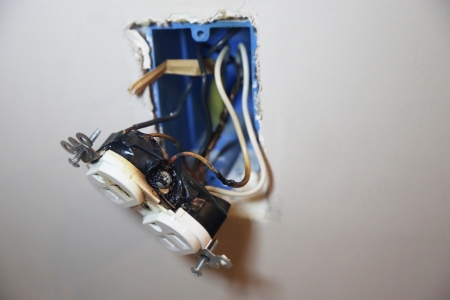Common Reasons Why Electrical Outlets Stop Working

Electrical outlets are essential in our daily lives, powering our devices and appliances. However, it's not uncommon for these outlets to suddenly stop working, leaving us puzzled and inconvenienced. In this blog post, we'll explore some common reasons why electrical outlets may cease to function and what you can do to troubleshoot and resolve these issues, including scheduling electrical repairs.
Overloading the Circuit
Electrical outlets are designed to handle a certain amount of electrical load. Plugging in too many devices or appliances into a single outlet or on the same circuit can overload it, causing the circuit breaker to trip and the outlet to stop working. To resolve this issue, unplug some devices and reset the circuit breaker by flipping it back to the 'On' position. Consider redistributing your electrical load to prevent overloading in the future.
Damaged Wiring
Worn or damaged wiring within the outlet or the electrical circuit can also lead to outlet failures. This can occur due to age, wear and tear, or rodent activity. If you suspect damaged wiring, it's essential to turn off the power to the affected circuit at the electrical panel and seek professional help. An electrician can safely inspect and replace the damaged wiring, ensuring your outlets work correctly and safely.
Faulty Outlet Receptacles
Outlet receptacles themselves can become faulty over time. The internal components may wear out, making it difficult for plugs to make proper contact. In such cases, it's best to replace the outlet receptacle. Remember to turn off the power to the outlet before attempting any replacement work. Ensure you choose an outlet that matches your existing wiring and meets safety standards.
Tripped GFCI Outlets
Ground Fault Circuit Interrupter (GFCI) outlets are designed to protect against electrical shocks. They have a test and reset button on them. If an electrical fault occurs, the GFCI outlet will trip, cutting off power to the connected outlets downstream. If your outlet suddenly stops working, check if it's part of a GFCI-protected circuit. Simply press the reset button on the GFCI outlet to restore power to the connected outlets.
Overheating and Melting
Over time, outlets can heat up due to constant use or loose connections. This heat can lead to melting of the outlet's plastic components, causing it to stop functioning. If you notice any signs of overheating, such as discoloration or a burning smell, immediately turn off the power to the outlet and consult a professional electrician. Replacement of the outlet is typically necessary to prevent further issues and ensure safety.
Tripped Circuit Breakers
Sometimes, an outlet may appear to have stopped working, but the issue lies with a tripped circuit breaker. Circuit breakers are designed to protect your electrical system from overloads and short circuits. If one specific outlet isn't working, check the electrical panel for a tripped breaker and reset it if needed.
Electrical outlets are crucial for our daily routines, and when they stop working, it can be frustrating. However, by understanding these common reasons for outlet failures and taking appropriate measures, you can troubleshoot and resolve most issues. Always prioritize safety when dealing with electrical problems, and when in doubt, consult a qualified electrician to ensure a safe and reliable electrical system in your home or workspace.
Are you in need of a skilled local electrician to help with your outlets? Call Alliance Expert Services for electrical repairs in Oklahoma City today!
Reach out to Alliance Expert Services today for electricians in Oklahoma City, OK, and HVAC services in Oklahoma City and surrounding areas!